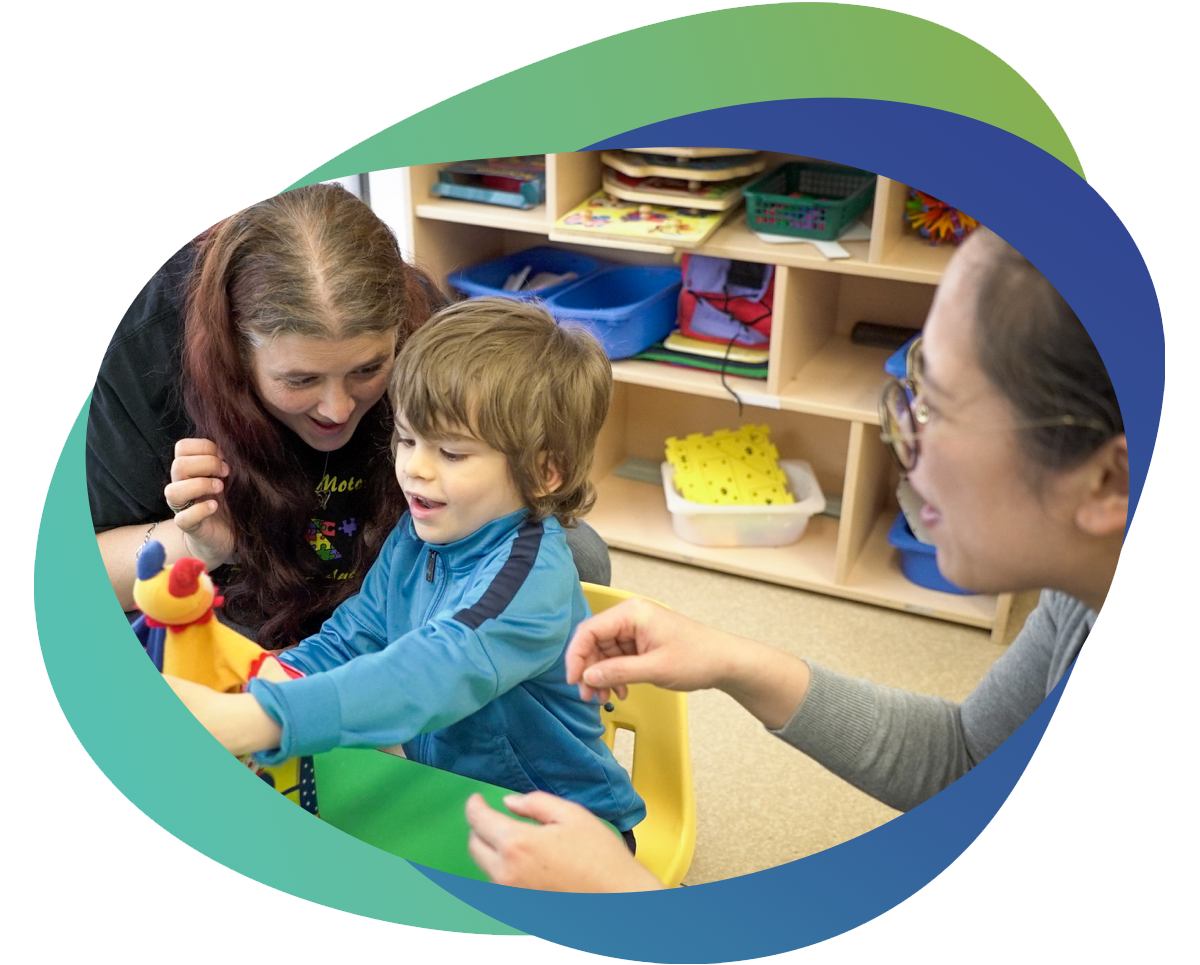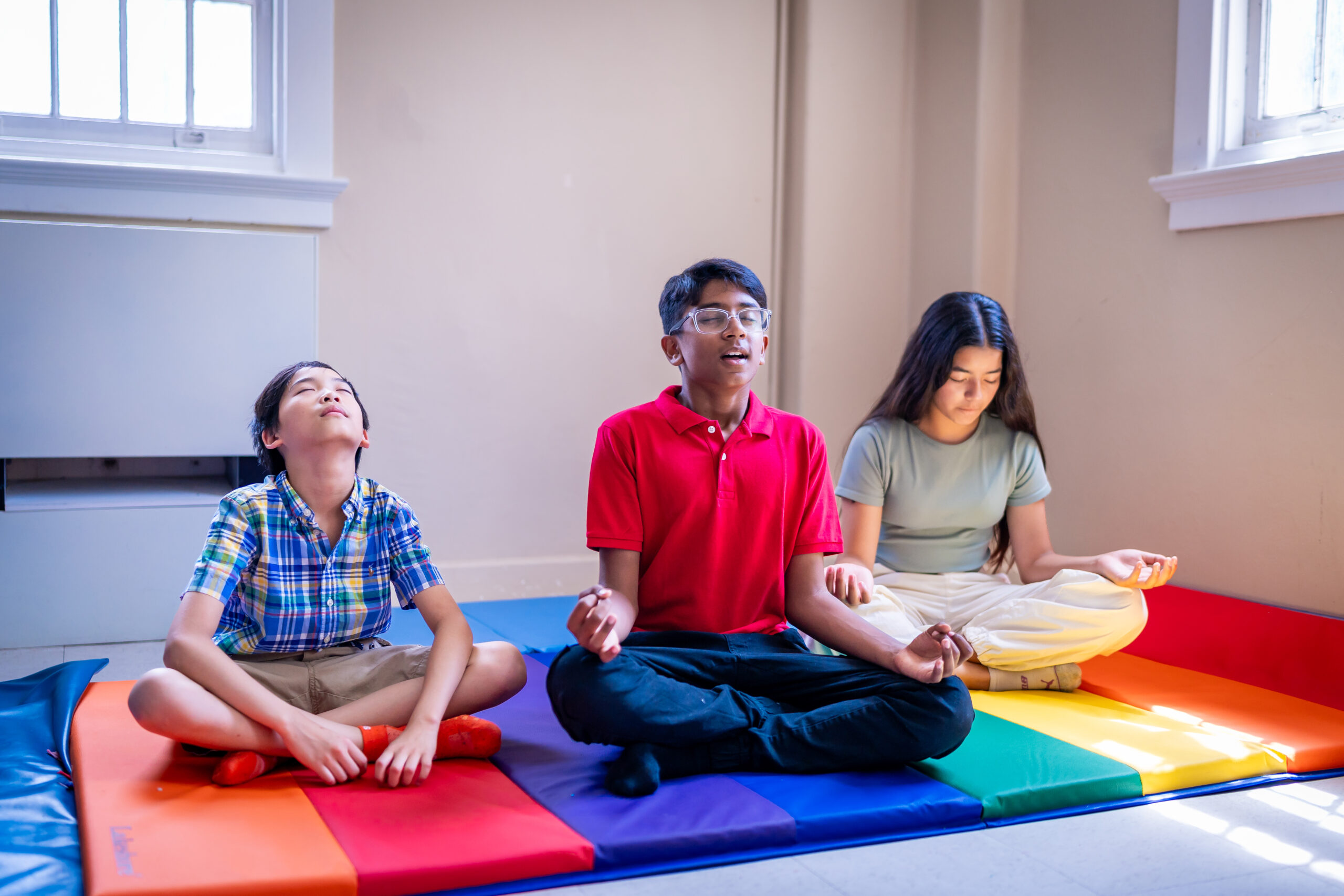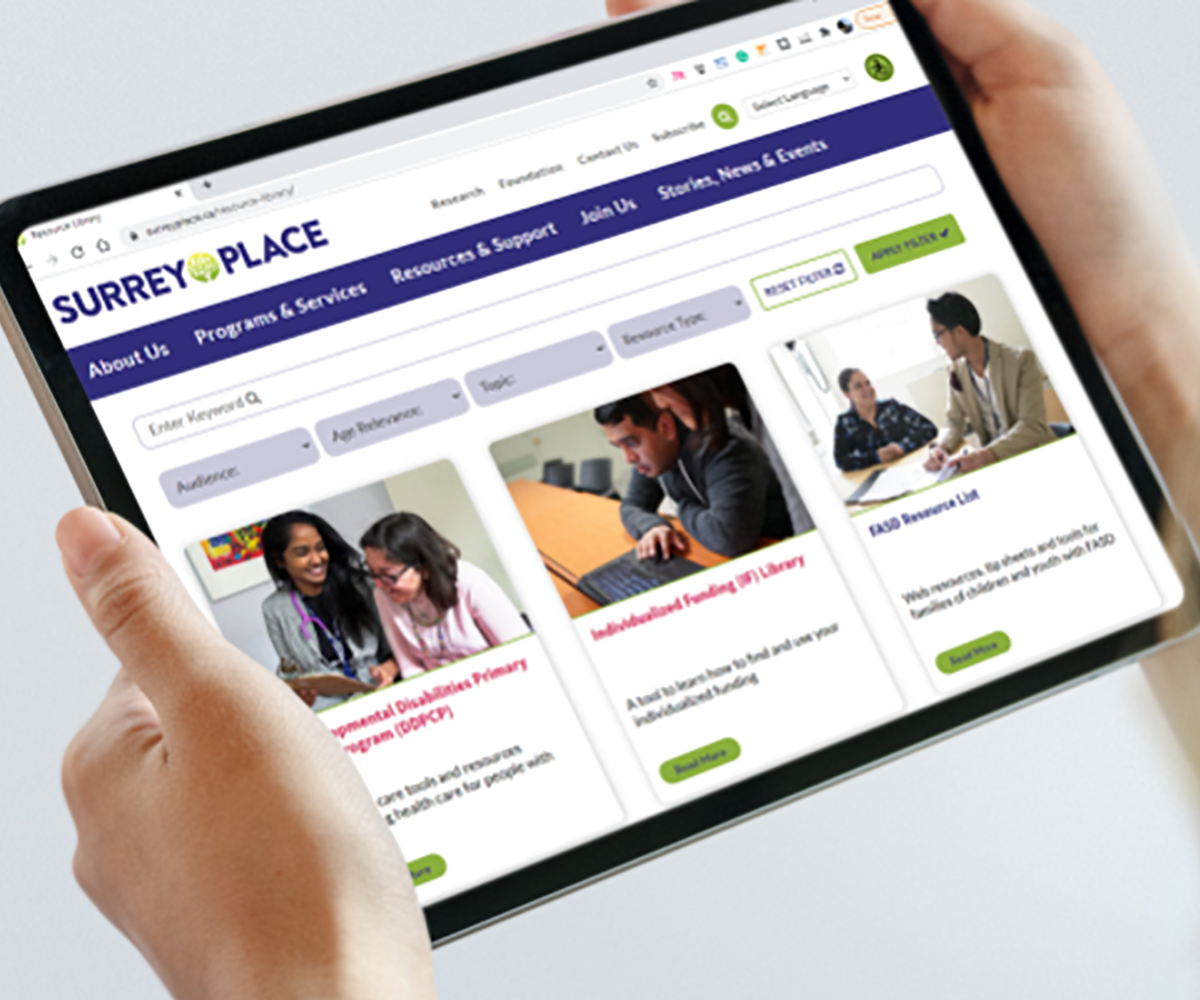Foundational Family Services
Assisting families to support their child’s development
To Register
View our upcoming service calendar

Foundational Family Services are available free of charge to all families registered in the Ontario Autism Program (OAP).
Navigating life with autism can be a journey of discovery and growth for families. The Foundational Family Services program is designed to empower families with the tools, knowledge, and support they need to navigate the journey confidently.
We offer a wide range of evidence-based supports provided in various formats to help caregivers learn how to best support their child or youth with autism. They include:
- Family and peer mentoring
- Caregiver workshops and follow-up coaching sessions
- Brief targeted consultations
- Transition supports
- Family resource and clinic days
Online registration is quick and easy, with no intakes required. Families can choose to access these services at any point based on their needs, at no cost. There are no limits to the number of times families can register for Foundational Family Services.
If you have any questions about our Foundational Family Services or would like support navigating community resources, please call 416-925-5141 ext. 2590, or contact FoundationalFamilyServices@surreyplace.ca .
Frequently Offered Sessions
We offer over 25 different service options that provide training and resources at various points in your autism journey. For example, some families with a recent diagnosis may appreciate “Introduction to Autism Spectrum Disorder”. Families with children interested in social interactions may find “Supporting Social Skills” useful. Many of our sessions also include a 1-1 follow up consultation after attending.
- ABA Essentials for Caregivers
- Caregiver Connect: A Parent Support Group
- Community Resources and Funding
- Dealing with Challenging Behaviour: A 2-Part Series
- Family Resource Clinic Days
- Getting Started with Toilet Training
- Healthy Sleep Habits
- Introduction to Autism Spectrum Disorder
- Increasing Daily Living Skills
- No Fair! How to Teach Emotional Regulation
- Orientation to the Ontario Autism Program (OAP)
- Parent Advocacy
- Supporting Mental Health in Teens
- Supporting Social Skills
- Teaching Early Communication Skills
- Triple P Group Stepping Stones
Why Register?
All events and services in our Foundational Family Services program are completely free for families registered in the Ontario Autism Program (OAP). Whether you’re looking for practical strategies to support your child’s growth, planning for long-term goals, or simply seeking a community of understanding and support, we are here for you every step of the way.
Benefits of Participation:
- Learn strategies with a high degree of fidelity
- Increase your child’s rate of learning
- Increase caregiver confidence and reduce stress
- Connect with other families with similar experiences
Interested in registering?
Browse our calendar to view all services.

Wellness Events
Did you know that we offer free events for clients, caregivers and professionals?

Resource Library
Find accessible information developed by our clinicians to help you on your journey.